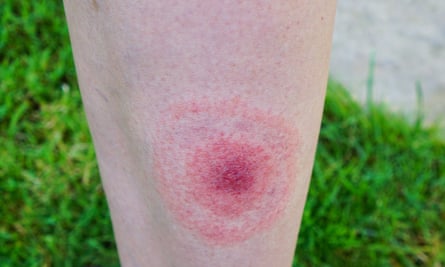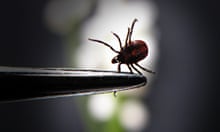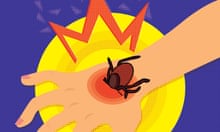He travelled the world studying exotic creatures in dangerous lands, but the disease that marred Charles Darwin’s life may have been caught closer to home as he trudged around Britain collecting insects, shooting birds, and picking up stones, researchers say.
The Victorian naturalist who gave the world the theory of evolution is a strong contender for the most famously ill scientist in history. His diaries, notebooks and letters brim with despair over ailments ranging from diarrhoea, rashes and heart palpitations, to vomiting, muscle pain and incessant flatulence.
While hypochondria undoubtedly played a part in Darwin’s misery, researchers have failed to agree on what illness or illnesses, lay behind his poor health. Medical historians have proposed everything from the insect-borne Chagas disease or panic disorder with agoraphobia to lactose intolerance and recurrent vomiting brought on by an unusual genetic mutation.
Now researchers in the Netherlands have come up with their own explanation for Darwin’s many afflictions. Rather than some exotic infection contracted overseas, they suspect he picked up Lyme disease from an infected tick while on field work in Britain as a young man.
“He had a lot of different symptoms: involuntary twitching of muscles, swimming of the head, a shortness of breath, trembling hands, and all of them came and went, and that is quite typical of Lyme disease,” said Erwin Kompanje, a clinical researcher at the Erasmus University medical centre in Rotterdam.
Kompanje and his colleague Jelle Reumer at the Natural History Museum in Rotterdam searched online databases of Darwin’s notes and correspondence for any mention of symptoms that might betray his underlying illness. When Darwin was in Argentina in 1835, he described being bitten by the “great black bug of the Pampas”, an inch-long blood-sucking insect that can transmit Chagas disease, which can damage the heart, oesophagus and colon. But the Dutch researchers believe his mild fluctuating symptoms, which started to appear before he reached South America, are more consistent with Lyme disease. The infection is caused by Borrelia bacteria which are carried by certain ticks.

“Exposure to a tick carrying Borrelia in Great Britain is much more plausible than exposure to Chagas disease during his travel in South America,” the researchers write in Deinsea, the journal of the Natural History Museum Rotterdam. “Darwin travelled around England and Wales, collecting insects, shooting birds, picking up stones and thus being exposed to ticks,” the authors add. “There must thus have been ample time during the first three decades of his life to get infected.”
In the 1990s, the US researchers Thomas Barloon and Russell Noyes concluded that Darwin’s symptoms pointed to panic disorder with agoraphobia. But Darwin travelled widely in his life and rode a horse until the age of 60. According to Kompanje and Reumer, the panic-like symptoms may themselves have been a product of Lyme disease, which can lead to attacks lasting not minutes but hours and days.
On top of Lyme disease, the Dutch researchers agree with a 2005 diagnosis by the British researchers Anthony Campbell and Stephanie Matthews that Darwin was lactose intolerant despite his fondness for sweet, milky puddings. The condition could explain his stomach pains, vomiting and flatulence, they write.
But other scientists may not be convinced by the Lyme disease hypothesis. The condition is known as “the great imitator” because the symptoms mimic so many other diseases. One common sign of being bitten by an infected tick is a red bullseye-type rash, but such a mark is never described in Darwin’s writing.
Richard Wall, a specialist in ticks at the University of Bristol, said: “Borreliosis is a particularly difficult infection to diagnose symptomatically even when the patient is available because of the diffuse and highly variable nature of the clinical signs; some researchers even question the existence of a chronic form of the disease. So, retrospective diagnosis at a historical distance of 200 years, while interesting, must be considered as highly speculative.”
Stuart Carter, professor of veterinary pathology at Liverpool University, said: “Darwin was keener on riding and shooting when he was supposed to be studying medicine at Edinburgh and so would have been likely to come into contact with potentially disease-carrying ticks. Hence it is possible that he was a chronic Lyme disease carrier, though such a condition is still not generally recognised.
“Darwin’s well-documented hypochondria is not an unusual finding in very gifted biomedical people who are constantly searching for links between cause and effect,” he added. “Considering he was alive in the pre-antibiotic era, if he had a chronic bacterial infection, he did remarkably well to live to 73.”









